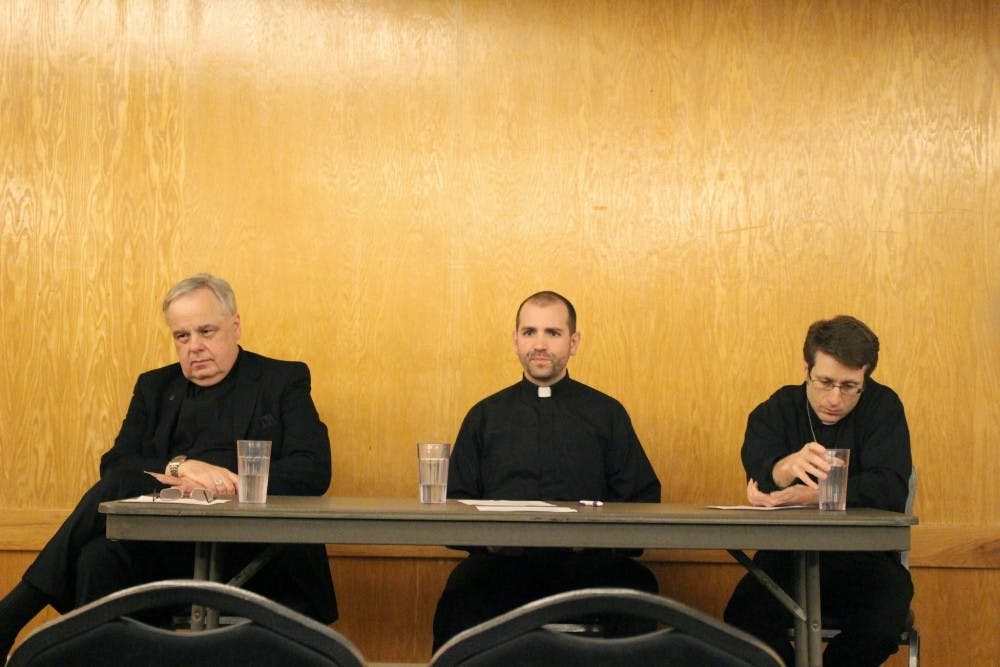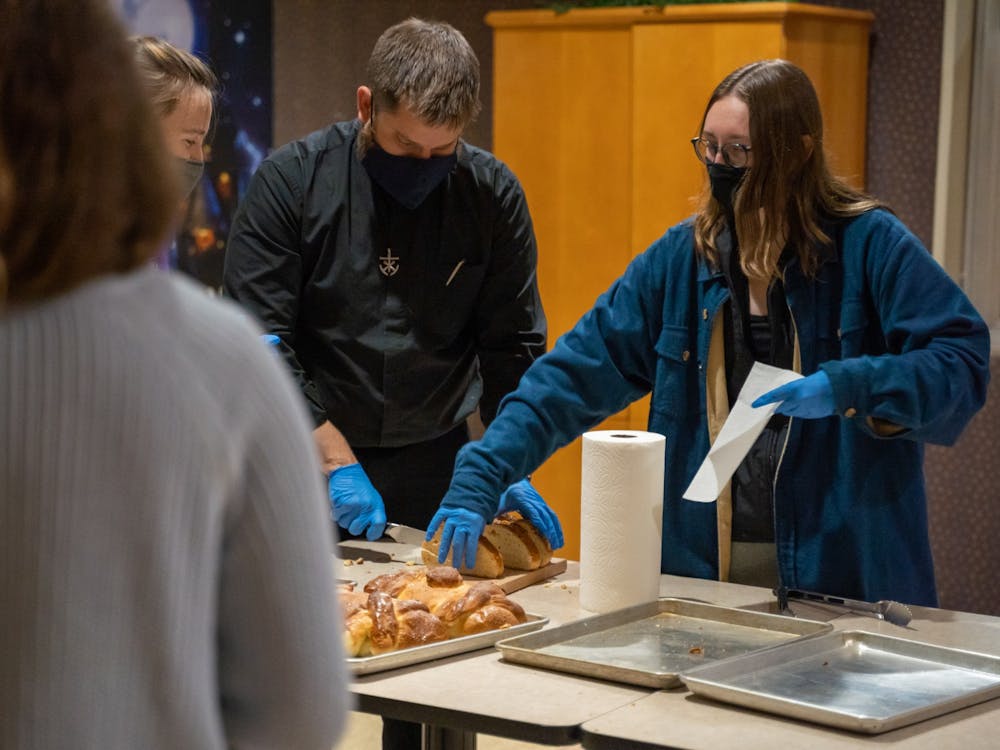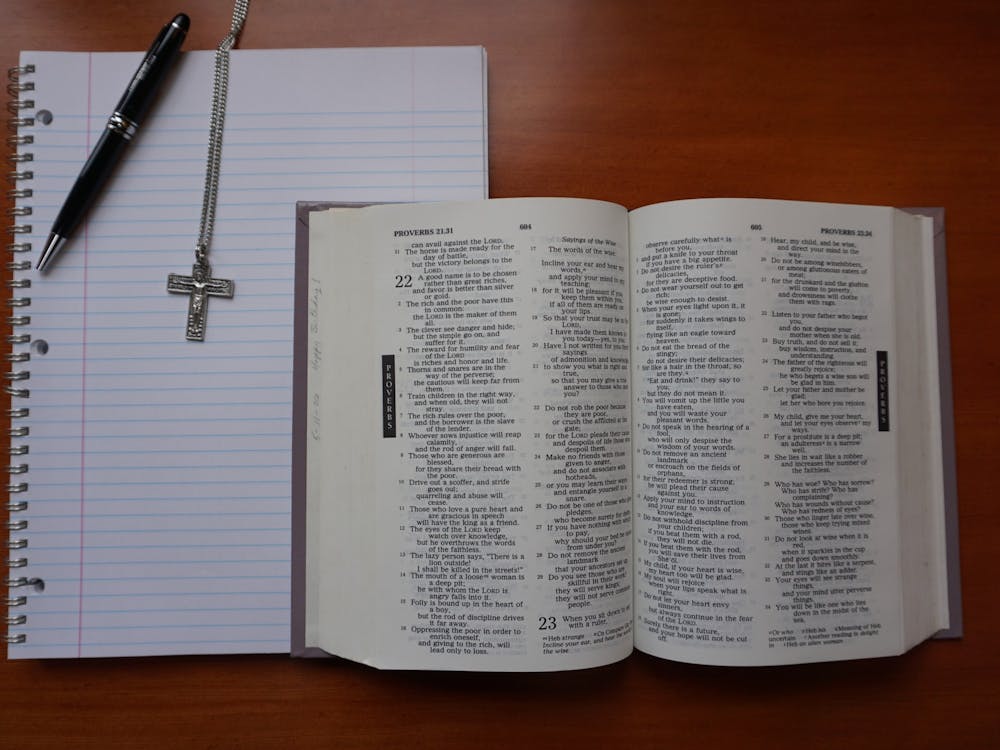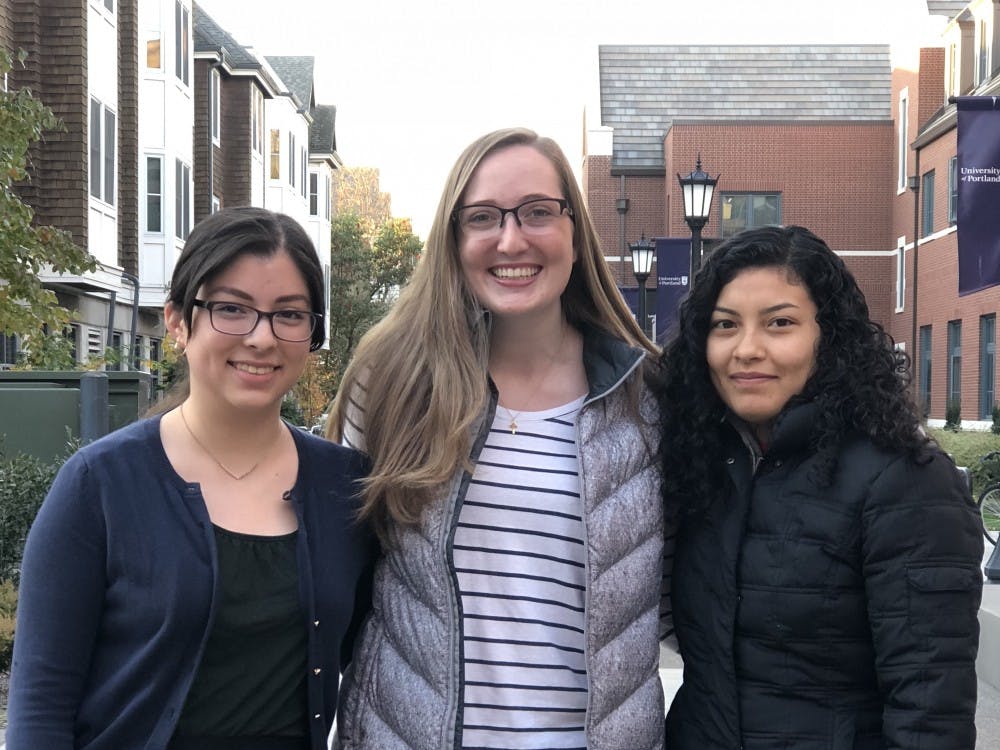Nastacia Voisin |
It’s hard to imagine a priest stumped by a student’s question, and almost harder to image a UP student willing to try to stump one.
Yet Monday evening the Terrace Room filled with students watching Fr. Charlie Gordon, Fr. Mark DeMott and Fr. Charlie McCoy puzzle over religious questions crafted by students earlier that day.
The brainchild of senior Calvin Tuhy, the Stump the Priest event was an opportunity hosted by the Servant Leadership Team to create a friendly space for students to challenge priests with hard questions. The conversation swung from silly to serious, and the priests tried to answer each query, at times disagreeing, reframing or admitting there was no absolute right answer.
Below are collected a handful of the student questions, and the priests’ responses.
Q: If the host turns into Jesus, why does it still taste like bread?
Fr. McCoy: This is something the Church defines pretty clearly, certainly by the Middle Ages. The technical language they use to formulate this is “substance vs. accidence.” But the thing is it’s actually a good thing it still tastes like bread. It would be an odd and bad thing if it didn’t still taste like bread. So this is Jesus coming to us – really – but under the appearance of bread and wine.
Q: Why would they change the part of the Mass that now says “it is right and just”? It just sounds awkward to me and I liked the old way.
Fr. DeMott: Change in language is kind of jarring. So looking at why the language changed, well, you might know that when Jesus was speaking, there was no one there with an iPhone to record what he was saying. So they didn’t necessarily get all of Jesus’ words transcribed the way we might with a recorder today. Also, Jesus didn’t speak English – which is hard to believe, but true.
We believe that we have some of Jesus’ very authentic words, but they’re in translation. So we have to figure out how to translate them. Translators came up with these two different ways. One is called dynamic equivalency and the other is formal equivalency. You can see the advantage with both of these: formal equivalency, we know we’ve got it right’ dynamic equivalency, maybe we can understand it a bit better. The most recent shift we’ve seen is a shift in the direction of formal equivalency. And you’ll notice a few words that are foreign to us, because they’re a little bit closer to the Latin.
Q: Why does UP use white wine at Mass instead of red wine? Can other fermented juices be used at Mass if wine isn’t available?
Fr. Gordon: Generally the Church urges people to use white wine for Mass, simply to make it clear that this is not blood. It’s wine, in the appearance. And yes, it has to be wine. The thing about sacraments is that the Church teaches they were given to us by God through Jesus Christ. So there’s always a kind of anxiety on the part of the Church that if we improve them, they might be improved, but they might not be sacraments anymore.
Q: What house in Harry Potter would Pope Francis be in?
Fr. Gordon: I think he’s a Hufflepuff, because everyone else has elegance, or a really pronounced self-identity. And I think he’d be with the people who are just Hufflepuffs. They don’t have a lot of remarkable people, and he’s there for the others, the people who aren’t special.
Q: Why is D Major God’s key?
Fr. DeMott: One reason is that each key has different kinds of feeling to it. If you look at movies with tragic scenes, or happiness, or music that evokes a sense of mystery or horror, you’ll notice that those music pieces are in the same key. Different keys are found to evoke a certain sense. D Major is actually the key of triumph. All of the famous marches are in D Major. And all of the great songs of the angels, the hallelujahs, are said to be in D Major. There’s also a story that the angels were once heard to be singing in D Major, but I’m not sure if that was ever substantiated.
Answers have been edited for brevity.








